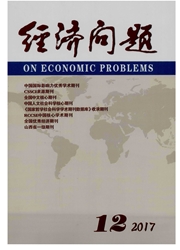

 中文摘要:
中文摘要:
通过对江苏徐州和广西柳州典型样本的调研发现,在中小企业贷款中,实际上存在着“绑定效应”,当中小企业在银行的贷款占自己资金缺口的比重较大时,出于风险控制和攫取更多剩余的目的,银行会提高贷款利率;当中小企业的融资渠道较多时,银行贷款利率反而因为中小企业的融资需求旺盛而提高。用中小企业与银行的合作年限、中小企业在该银行贷款比重等进行衡量的银企关系深度越强,中小企业银行贷款利率反而越高,而用中小企业在银行开办的其他业务数量来衡量的银企关系的广度越强,中小企业贷款的利率则会越低。
 英文摘要:
英文摘要:
SME financing is one of the current hot issues. It is generally believed that, effective relationship between banks and SMEs can reduce the loan collateral requirements of SMEs, and effectively reduce the loan interest rate. However, through the Jiangsu Xuzhou and Guangxi Liuzhou typical sample surveys, the study found that, in the SMEs' loans, actually exist "binding effect". When loans accounted for a larger proportion of the funding gap at SMEs, for risk controlling and grabbing more surplus value, the bank will raise the loan rates. When SMEs have more financing channels, bank loan interest rate became higher because of the SMEs' exuberant financing demand. The deeper of the relationship depth between banks and SMEs, which measured by the number of years of cooperation and the proportion of loans, the higher of the loan rates; but the wider of the relationship breadth between banks and SMEs, which measured by the number of other business, the lower of the loan rates.
 同期刊论文项目
同期刊论文项目
 同项目期刊论文
同项目期刊论文
 期刊信息
期刊信息
